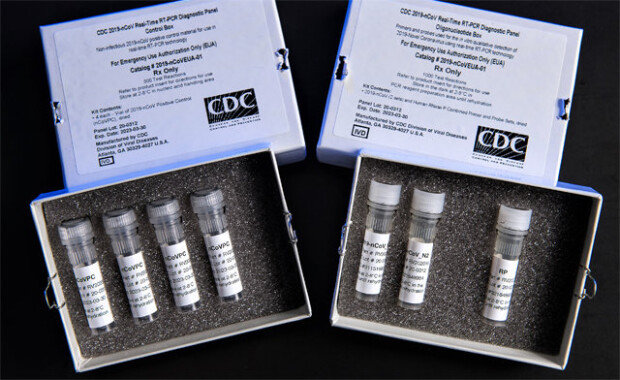More rapid and convenient COVID-19 testing becomes available
More rapid and convenient COVID-19 testing becomes available
Posted December. 07, 2020 07:59,
Updated December. 07, 2020 07:59

Testing plays a key role in preventing the spread of an infectious disease by identifying those who are infected. Scientists are developing new COVID-19 tests that are significantly less costly and time-consuming. Noh Gyeong-tae of the Armed Force Medical Command has developed a “RT-LAMP” test, which, similarly to an RT-PCR test, detects the virus’s genetic material in oral or nasal swabs. However, unlike an RT-PCR test which requires the heating and cooling of the DNA, it is performed at a constant temperature between 55 and 72, making it possible to diagnose the virus within an hour. It was the first COVID-19 technology that obtained a patent and was chosen to be used at Silvio Pettirossi International Airport in Paraguay last month.
There is also a CRISPR-based test. CRISPR is a technology to find and alter a specific bit of DNA that causes hereditary diseases. Researchers at the University of California, San Francisco, led by Professor Charles Chiu of laboratory medicine in the division of infectious diseases, developed a new technique that cuts DNA at targeted locations and uses molecules tagged with a fluorescent dye that produces a color when cut to diagnose the disease. The study was published in an international scientific journal Nature Biotechnology.
Jennifer Doudna, professor of University of California, Berkeley who received the 2020 Nobel Prize in Chemistry, said on Nov. 12 that she developed a CRISPR-based test that detects the pandemic coronavirus in just five minutes. The test can be taken at home and do not require expensive equipment.
The United States has introduced saliva tests that allow a patient to spit into a tube. Unlike other tests, samples do not have to be collected in the presence of healthcare workers. The United States Food and Drug Administration has approved them in April. There are also pooled sample testing that combines genetic material from several people’s swabs into one test and antibody tests, which take 10 minutes to get results. Chest X-rays can also be used to identify asymptomatic patients.
The evolution of testing is expected to boost the diagnostics market. U.S. market research firm Global Market Insights forecasts that the market for coronavirus test kits will grow by 17.3 percent annually from 3.3 billion dollars in 2020 to 8.5 billion dollars in 2026.
reborn@donga.com






